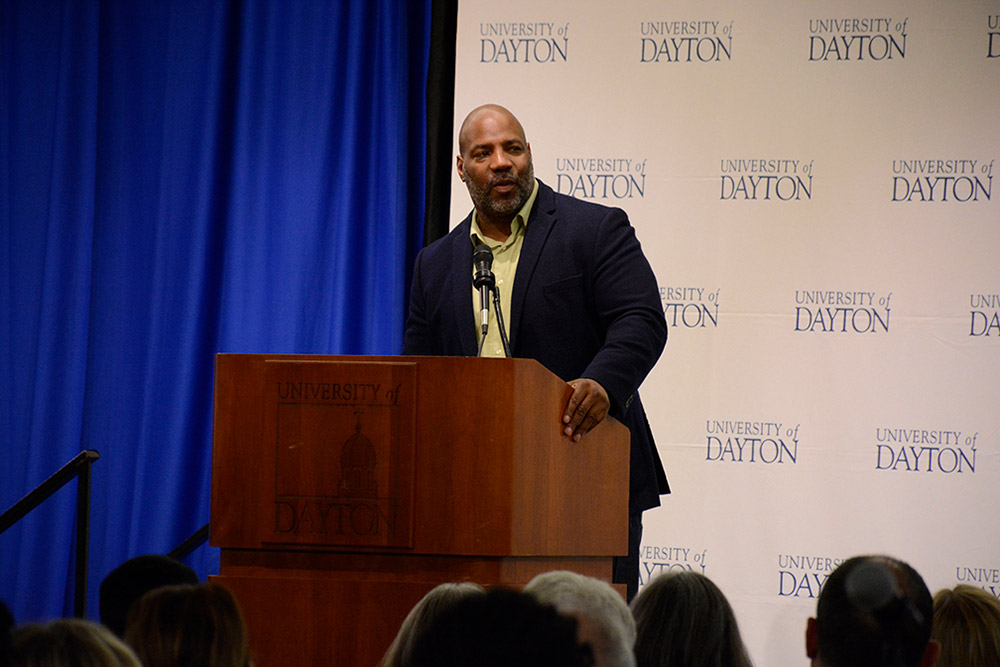Speaker series: Race and the nation
William Jelani Cobb, a professor of journalism at Columbia University and a staff writer for The New Yorker, spoke to an overflowing room of students, faculty and community members Tuesday, Jan. 24 at the annual Rev. Dr. Martin Luther King Jr. commemorative speaker event on campus.  Cobb captivated the room with personal stories, historic references, profound statements, and explicit examples addressing racism in the United States.
Cobb captivated the room with personal stories, historic references, profound statements, and explicit examples addressing racism in the United States.
He began by telling a story of a coincidental moment from his coverage of the Dylan Roof trial. While on an unrelated business trip in California, he met a man from Charleston, N.C. who was personally affected by the shooting. Cobb explained how the meeting demonstrated that issues of race do not exist within isolated pockets, but permeate every corner of the nation. This concept became the main fixture of his speech.
“We cannot understand America without understanding race,” Cobb said.
As a specialist in the areas of post-Civil War African-American history and twentieth century politics, Cobb traced racism back to the creation of the country. He used the example that the Constitutional Convention, “copy-edited black freedom out of the Constitution.” This historical context translated into wide-eyed, quick-pen reactions from the audience.
As Cobb continued, he gradually transitioned to his hard-hitting point: racism’s presence in modern society. Topics such as the Black Lives Matter movement, voting complexities and incarceration were discussed at length.
In one example, Cobb identified what he calls the “new caste system through incarceration.” Further, he emphasized the oppressive implications surrounding the geography of prisons.
While many weighty subjects regarding racial injustices pervaded Cobb’s speech, he remained hopeful, especially when he referenced the predecessors of the Civil Rights movement. Cobb noted, “we are indebted” to those who came before us who did “the heavy moral lifting.” On progress, Cobb suggested that it does not inevitably continue to move forward: it is cyclical. “Progress doesn’t just happen,” Cobb said. “It happens by people doing things.”